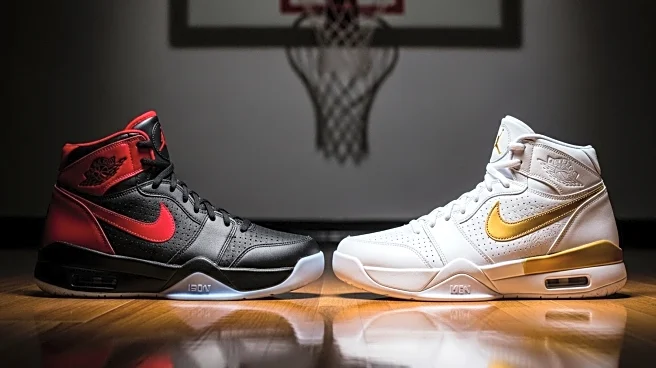What's Happening?
Caitlin Clark, a prominent guard for the Indiana Fever, is currently not participating in games due to a groin injury sustained in mid-July. During the 2025 WNBA All-Star weekend, discussions around the WNBA Collective Bargaining Agreement (CBA) were prominent, with players advocating for increased salaries and revenue sharing. NBA legend Robert Horry suggested that Clark should adopt a strategy similar to Michael Jordan's, focusing on controlling her image and likeness rights. Horry's comments came during his podcast, where he emphasized the potential financial benefits for Clark if she were to negotiate her likeness rights separately, akin to Jordan's approach during his NBA career.
Why It's Important?
The advice from Robert Horry highlights the ongoing challenges and opportunities within the WNBA regarding player compensation and rights. As the league continues to grow, players like Caitlin Clark, who have significant marketability, could influence the financial landscape of women's basketball. By advocating for individual control over image rights, players could potentially increase their earnings and set new precedents in sports marketing. This development is crucial as it could lead to broader changes in how female athletes negotiate contracts and assert their value within professional sports.
What's Next?
The WNBA and its players are in the midst of negotiating a new CBA, with the current discussions focusing on revenue sharing and salary increases. If players like Clark take Horry's advice, it could lead to a shift in how individual contracts are structured, potentially impacting future negotiations. The outcome of these negotiations will be closely watched by stakeholders in women's sports, as it could set a benchmark for other leagues and athletes seeking similar rights and compensation.
Beyond the Headlines
The suggestion for Clark to follow Jordan's strategy underscores a broader movement towards athlete empowerment and financial independence. This approach could inspire other athletes to seek greater control over their personal brands, challenging traditional sports business models. Additionally, it raises questions about the balance between individual and collective bargaining rights within sports leagues, potentially influencing future legal and ethical considerations in athlete representation.








